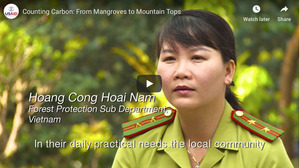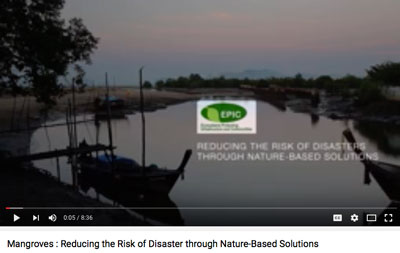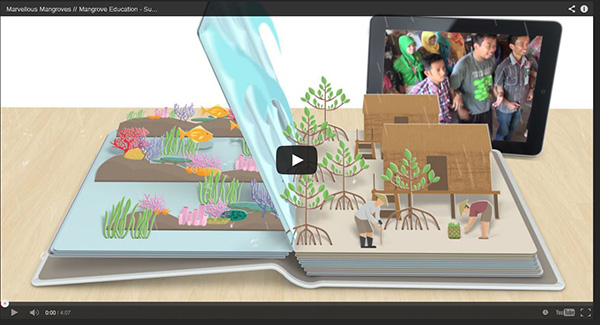International group to help restore Kulhudhuffushi mangrove 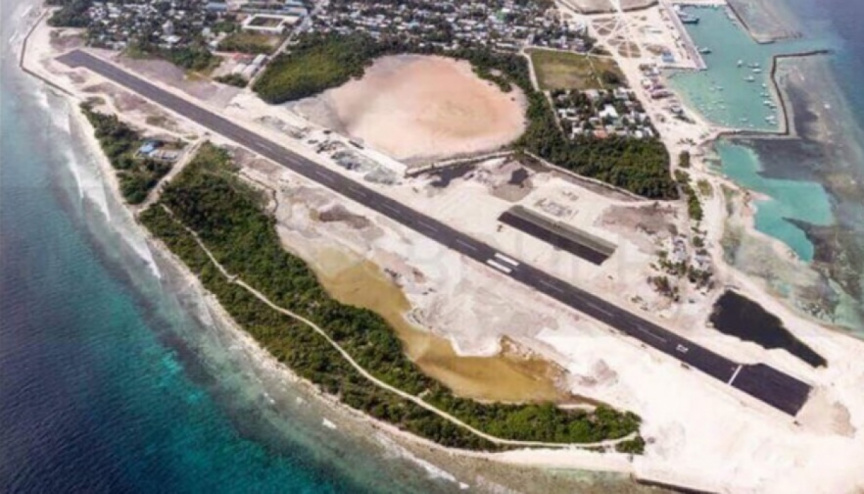
MALDIVES – The Maldives government has accepted an offer from an environmental group to help restore and revive the Kulhudhuffushi mangroves after a controversial airport project destroyed a large part of the unique ecosystem. Environment Minister Dr Hussain Rasheed Hassan accepted the offer from Mangrove Action Project, a US-based nonprofit specialising in conservation and restoration of mangroves, the environment ministry tweeted. The Kulhudhuffushi mangroves were reclaimed in late 2017 to make way for an airport despite a public outcry and warnings of lasting and irreversible damage from an Environment Impact Assessment report. A 2013 campaign pledge of former president Abdulla Yameen for the northern population hub, the project was rushed to completion ahead of last September’s presidential polls. Claims made by relocated residents were disregarded and mitigation measures advised by the assessment report to protect the remaining area were ignored. Activists and environmental NGOs have since protested the lack of action to preserve the remaining wetlands.
READ MORE AFRICA
The fiddlers influencing mangrove ecosystems

SAUDI ARABIA – The types of bacteria present in and around mangrove fiddler crab burrows in three different geographic locations were compared by KAUST researchers. They found that the crabs' burrowing activity changed the sediment in a way that attracted different types of bacteria across the three locations: however, the bacteria performed similar functions, such as aerobic respiration, and potential ecological services, such as turnover of organic matter. "Mangrove crabs act like ecosystem engineers: Their burrows create radial, halo-like microbiological and geochemical modifications to the surrounding sediment compared with soil that has been left undisturbed," says Jenny Booth, the first author of the study. "This effect was similar in all three locations, with the burrow-dwelling bacteria being taxonomically different but functionally similar," she adds. Microorganisms play important roles in driving global biochemical cycles, such as the nitrogen cycle, in which nitrogen–a building block of proteins and nucleic acids– circulates among the earth, the atmosphere and marine ecosystems. READ MORE
Improving how we work for – and with – indigenous and local women in their communities
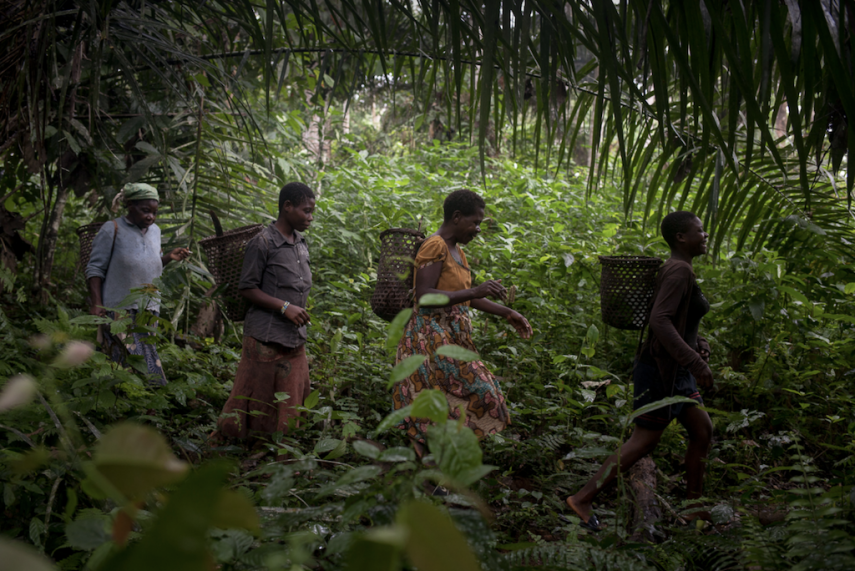
CONGO – As a human rights organisation, gender justice is a fundamental principle of our work, and we have long been conscious of, and sought to address, the barriers to effective participation in decision-making by women, as well as the other human rights violations they may face on account of their gender. This blog summarises some of the experiences and learnings from our fieldwork in the Congo Basin over the past 5 years, on how to improve women’s effective participation at the community level. Some of these points may be new, though many reflect recommendations made by other actors working in this field. However, we feel that it’s helpful to remind ourselves of how important all of these factors can be in the pursuit of gender justice. Holding separate meetings with women is a well-known strategy for improving women’s participation, but it’s importance really cannot be overstated – particularly in communities where women haven’t had a lot of specific experience in the past. It has regularly been the case that we have had only one or two limited comments from women when mixed meetings were held, but a huge amount to say when they were on their own. READ MORE
ASIA
Ecosystem-based approach for planning research
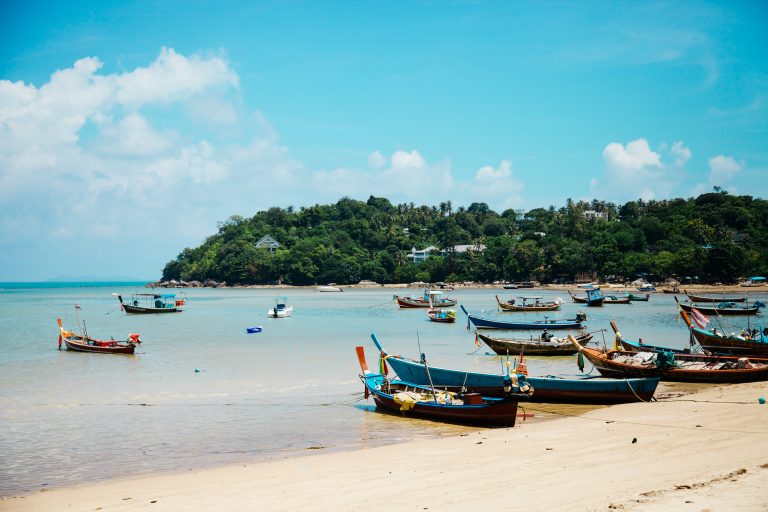
Thailand – Coastal ecosystems contribute significantly to socio-economic development in the southeast Asia region. The emerging question is how to achieve sustainable development through innovative thinking, smart planning and better insights derived from an ecosystem-based approach (EbA). Based on experience gained while implementing the Sustainable Management and Governance of Coastal Ecosystems (ENGAGE) project funded by the Asia-Pacific Network for Global Change Research (APN), we contribute to addressing this question by proposing an emerging EbA as a complementary concept for implementing Integrated Coastal Zone Management (ICZM). A strong emphasis on strengthening the capacity of development actors and local communities remains pertinent in formulating this eco-centric policy for resource governance. This synthesis is described in three sections presenting an overview of EbA and ICZM in selected countries in the region. The first section reflects the review of coastal management frameworks and institutions, with a focus on policy strengths and gaps in the integration of EbA, particularly in the context of climate change adaptation. The second section explains different procedures adopted or proposed in the region for sustainable development of coastal ecosystems. The third section demonstrates how regional-scale initiatives like ENGAGE can facilitate the exchange of data, information, and knowledge, and stimulate cooperation for realizing the 2030 Agenda for Transformation, and the coastal zone-related SDGs and targets. READ MORE
Mangrove ecotourism helping to reduce the risk of natural disaster in Vietnam delta

VIETNAM – “Being an ecotourism host brings us so much joy – it’s fun to have visitors!” said Tran Thi Soi after serving us homemade dark purple giác berry juice in her family’s isolated home stay, nestled in the mangroves of Mui Ca Mau National Park (MCMNP). Tran and her family are something new in this part of the Vietnam Delta: ecotourism hosts. Her family is one of five taking part in an ecotourism pilot project supported by WWF to create sustainable livelihoods in the area that benefit both people and the park. Before her family became ecotourism hosts, few visitors ever came to her home in the park's buffer zone. It takes more than two hours by car and then by boat through a maze of mangroves to reach her home perched on a narrow strip of land between canals in the wetland forest. Any visitors that did make the trek only came for a quick trip to see the End Point tower, which marks the southernmost tip of Vietnam. But now those tourists stay to experience life in the mangroves and Tran couldn’t be happier. And it gives the people of Mui Ca Mau another incentive to conserve the mangroves, which are a vital protection for the communities themselves. The mangroves form a buffer between the land, sea and Mekong River, helping to maintain this patch of the Delta and shielding communities against natural disasters. READ MORE
Water way to go

THAILAND – There was once a time in Thailand when the population was small and the waters were full of life. Today, the country has nearly 70 million people, but the number of marine creatures is decreasing all the time. In the past, people had respect for the seas, lakes, rivers and their inhabitants. We are not so conscientious anymore. There isn't enough concern about what our activities could mean for the future. There are many lessons that can be learned as a consequence of the destruction of mangrove, wetland and napa palm forests, all home to an abundance of life. With the depletion of these forests, animal populations collapse, some even disappear. From time to time, campaigns and movements are initiated to try to protect these forests and raise awareness of their importance to the creatures who live there. But these conservation projects are fighting an uphill battle against the ongoing destruction. There have been some successes. There is a mangrove forest in Satun covering many neighbourhoods that is protected s a national seaside park. READ MORE
AMERICA
Human Rights abuses can no longer be tolerated in conserving the world’s forests
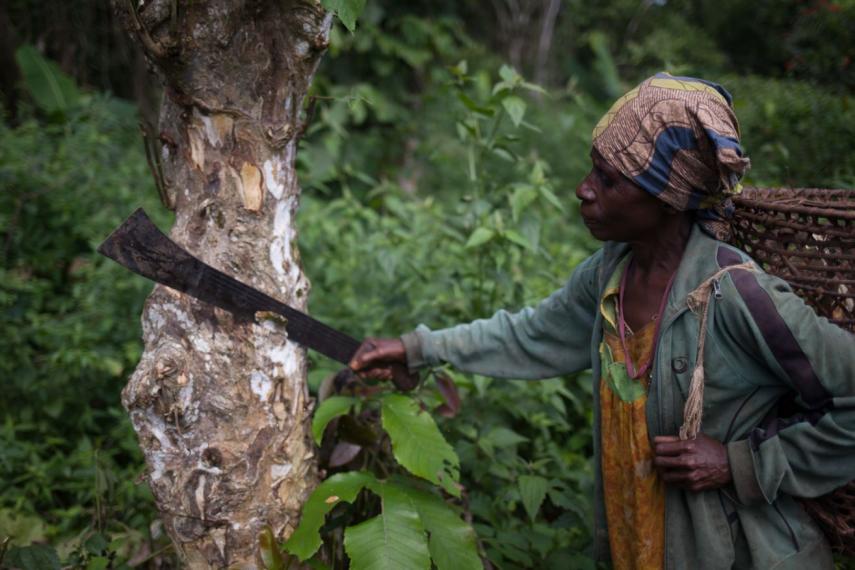
BRAZIL – Recent Buzzfeed reports about WWF hiring ‘paramilitary forces’ to fight poaching and the associated human rights abuses of local peoples show the urgent need for a shift in current conservation models. Forest Peoples Programme Director, James Whitehead today said:“To protect the world’s forests and wildlife while respecting the rights of those who have lived for generations in these areas we need a fundamental change in the approach taken to conservation globally.” “The National Park model of excluding indigenous peoples and local communities is fundamentally flawed – we have witnessed countless examples of human rights abuses in conservation projects, stretching back to our formation in the 1990s.” Yet conservation and human rights are not intrinsically opposed. There is mounting evidence that conservation based on respect for the rights of traditional owners of the lands is more effective than exclusionary protected areas. For example, in the Amazon deforestation is between 2 and 6 times lower in areas where indigenous people have land rights. READ MORE
OCEANA
International expertise sought to restore Kulhudhuffushi mangrove

MALDIVES – Ministry of Environment has made the decision to seek international expertise to restore life to the H. Dh. Kulhudhuffushi mangrove which was damaged in the land reclamation project for construction of an airport on the island. State Minister of Environment, Abdulla Naseer said the land reclamation had resulted in drastic changes to the natural properties of the large mangrove. He said that the mangrove, as a result of the land reclamation project, is now cut off from the sea. “Many have been urging us to restore it. We need to assess possible options to do this. Our objective is to identify the resources necessary and the methods by which we can do this. We are currently planning on seeking international expertise,” said Abdulla Naseer. Environmental Protection Agency (EPA) confirms Minister of Environment, Dr. Hussain Rasheed has now accepted support from the international network, Mangrove Action Project (MAP) to save the Kulhudhuffushi mangrove. MAP has presence in multiple countries and uses Community-Based Ecological Mangrove Restoration (CBEMR) technique to restore and save dying mangroves. READ MORE
GLOBAL
Degradation of Marine Ecosystems
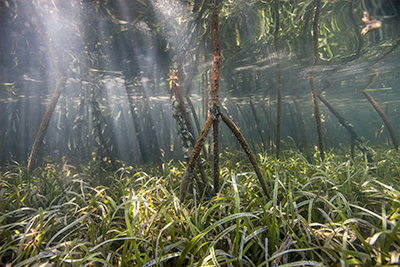
Global – The extent of the benefits that communities and economies derive from the ocean depends on the overall health of the ocean. While some components of the marine ecosystem and the services they provide are more visible, such as fisheries, others are hidden below the surface. In this chapter, we conduct a closer examination of mangroves, seagrass meadows and coral reefs, among the most undervalued elements of the marine environment. Their degradation and the resulting adverse impact on marine life have been well documented but only in recent years has there been a more widespread recognition of their value. “There’s limited understanding of the linkages among the three,” says Dominic Wodehouse, adviser at the Mangrove Action Project. “The system works much better if all three are healthy.” READ MORE
UN declares 2021 to 2030 ‘decade on ecosystem restoration’
http://www.mangrovealliance.org/wp-content/uploads/2017/07/Small_WW1114624.jpg
GLOBALL – On March 1 the United Nations General Assembly approved a massive global target for the next decade: restore the world’s deforested and degraded ecosystems. Worldwide there are more than 2 billion hectares that could potentially be restored. This could support and improve the wellbeing of 3.2 billion people. Priority ecosystems include wetlands and aquatic ecosystems like mangroves, which are disappearing faster than terrestrial ecosystems. This “Decade on Ecosystem Restoration” emphasizes scaling-up restoration activities to increase the larger impact on severely degraded areas. The goal has the potential to raise political will and unlock funding for restoration work in many countries, while increasing awareness within the public about the importance of restoration in combating climate change, biodiversity loss, and human wellbeing and livelihoods. It builds on comittments in existing goals, like the Bonn Challenge, which aims to restore 350 million hectares of ecosystems by 2030. Implementation of the Decade will be led by UN Environment and the Food and Agriculture Organization of the UN. READ MORE
Save the Date

GLOBAL – The 9th year WCFF anniversary is October 17-27, 2019 in New York, NY. Over 100 films, representing more than 35 nations. Filmmakers, scientists, wildlife conservationists in attendance from across the globe.Ten days of film screenings, panel discussions, receptions, field trips, networking and more. To submit a film, participate in a panel discussion or serve on the planning committee contact: info@wcff.org
LAST WORD
Dear Petu,
Thanks for your interest in our efforts to collaborate with the government of the Maldives to help find ways to conserve and restore the mangroves at Kulhudhuffushi that were so badly affected by the airport development. At this point MAP in partnership with members of the international Mangrove Specialist Group (MSG), a sub-group of IUCN devoted to mangrove wetlands, are planning to send a team of experts to visit the site where the remaining mangroves are struggling for survival due to blockage of their sustaining hydrology, which includes both the tidal flows and fresh water inputs from streams and rains. We know that this hydrology has been negatively impacted, which if not corrected could lead to the demise of the remaining mangroves. Therefore, as the Minister of the Environment, Dr. Hassan, and I agreed, we must try to find a way forward to revive the hydrology in part or whole to rehabilitate the still existing mangrove area.
MAP as well as the MSG see the need to conserve and restore our planet's mangroves as an imperative for so many vital reasons. (Please see the attached information I recently sent Dr. Hassan.) One immense issue we all need to collectively confront today is climate change, which is causing melting ice caps and glaciers furthering rising sea levels, coastal erosion, droughts, flooding and more frequent and virulent storms. While mangroves sequester and store up to five times more carbon than tropical rain forests, over half the world's mangroves have been destroyed and degraded, whereby important ecological services and benefits have been lost or greatly diminished resulting in world fisheries declines as well as great loss in biodiversity.
This tragedy should and still can be avoided by more careful and long-range planning by all coastal resource managers and conservation interests. But this planning must start now, not after the damage has been done and more mangroves have been lost.This is the larger picture, and MAP, the MSG and other global networks such as the Global Mangrove Alliance are working towards halting further mangrove loss and restoring mangroves where we can.
The Maldives, though containing a small percentage of the world's mangroves contains some unique and threatened mangrove species, which if lost may result in their extinction. As well, the Maldives is a place we can build up needed global awareness of their importance, and set a much needed example by finding ways we can work in a collaborative, positive fashion with government, local communities, local non-government organizations (NGOs), scientists and business interests to develop a more holistic and sustaining approach to mangrove conservation, which must be interwoven integrally with an overall coastal management plan, if it is to succeed.
We are still working on a time to visit, but are now considering bringing the team of mangrove experts to the Maldives around mid-April, but must work out our plans with the Minister Dr. Hassan.
To learn more about MAP, please visit our website: www.mangroveactionproject.org
I hope this is helpful. If you wish to talk via Skype, please let me know. Or send me your What's Ap number.
For the Mangroves and Mangrove Communities,
Alfredo Quarto,
Co-founder and Program & Policy Director
Mangrove Action Project
Back to Top













